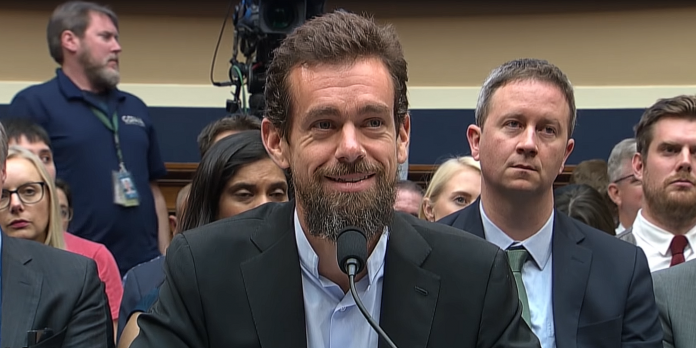As Democrats in Congress planned another impeachment do-over at the start of the final full week in President Donald Trump’s first term, Trump sought to take on one of the gravest threats of his presidency: big tech censorship.
Trump, who along with countless other conservatives, has been deplatformed over the past few days by social media publishers and other online forums planned to address the issue on Monday, with some speculating he would re-up a push to revoke Section 230 of the Communications Decency Act.
The president’s speech was one of several ways conservatives hoped to push back against the unprecedented crackdown by the increasingly authoritarian Left, now on the cusp of assuming unchecked political power in both Congress and the White House.
Two days after ostensibly pro-Trump rally-goers briefly occupied the US Capitol, Twitter used the protest as a pretense to purge Trump and several of his most outspoken allies.
Facebook also banned Trump and countless others—even deleting the leaders of a #WalkAway group that targeted traditional Democrats who were appalled by their party’s radical lurches leftward.
Amazon—the online retailer owned by billionaire oligarch Jeff Bezos—moved to censor alternative social-media platform Parler, which hosted the site on its servers.
Both Apple and Google removed also removed the Parler app from their respective app stores, even after the site saw an estimated uptick of about 600,000 new members following Twitter’s censorship of Trump.
But Parler pushed back with a lawsuit accusing Amazon of breaching contract and violating anti-trust laws.
Story here w/ @chrisismills — link to court filing inside https://t.co/hvk58QKvh2
— John Kruzel (@johnkruzel) January 11, 2021
Stockholders also made known their outrage, dumping Twitter with more than 6% losses on the day after plummeting more than 12% at open, the Epoch Times reported.
Selloffs also forced roughly 2% losses for Facebook, Apple and Amazon.
Fake news financial analysts like Barron’s bizarrely claimed the backlash was anger against big tech for allowing the protest, not for censoring conservatives after the fact.
“While the week will certainly be remembered for far more shocking events, it’s not lost on us that we may be at the precipice of a change to long-standing Internet rules of engagement,” wrote analyst Mark Shmulik in research notes, according to Barron’s.

